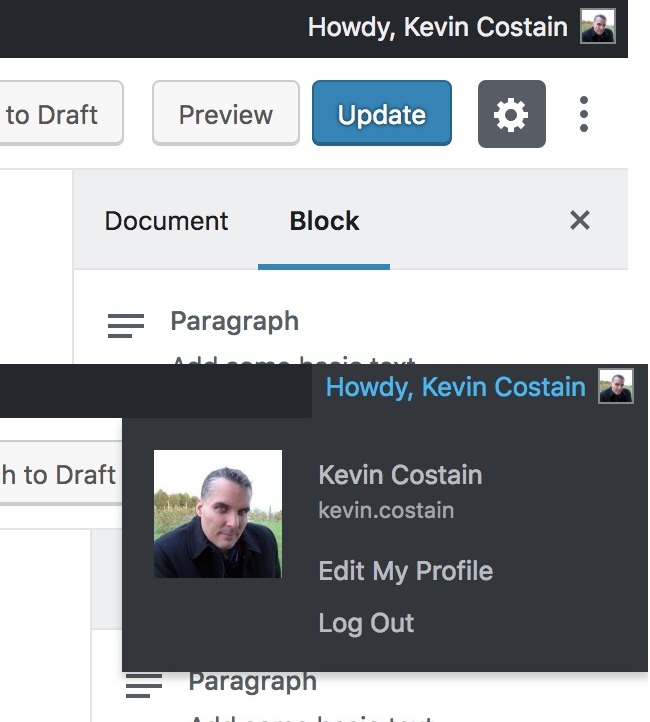On WordPress’ New Gutenberg Editor
The Gutenberg editor. WordPress has decided that its current editor won’t do and that it was time to update the “Classic” text editor into something more utilitarian called “Gutenberg”. I thought “Ok, I’ll try it”. Then, immediately it did not work. And, I think many out there are facing the exact same thing. This is all feeling like WordPress is trying to empty Lake Ontario with a bucket. It’s a futile gesture, but maybe it’s the gesture that counts? It’s like the world is craving no more sequels to movies, but when you give them something original, they don’t show up. WordPress, you’ve got a fight ahead of you.
This wasn’t easy. at all. On the first run of the editor, all I was left with was blank space where the editor was, and the WordPress menu on the left. Part of this answer was focused on a file that was being loaded from a directory named “data” in Gutenberg’s plugin directory. There were a number of directories named “data” there and one was not loading a Javascript file. After some effort combing over my server, WordPress installation and needless focus in the .htaccess file, I found the answer
Turns out was an entry in my Apache config file ( /etc/httpd/conf/httpd.conf) that blocked access to any directories named “data”. This was affecting the server on a global level. The entry looks like the code below:
<LocationMatch “/(data|conf|bin|inc)/”>
order allow,deny
deny from all
satisfy all
</LocationMatch>And this is just one of the many ways Gutenberg can run afoul with installations. In my burdened research, I came across many references to permalink issues, a corrupted .htaccess file, and even various “Check for this or that plugin”. If you’d like to see the entire process while I work through it, you can find it on WordPress’ forums. In the end, it all amounts to speculation because of the massive and diverse number of WordPress sites out there. By some estimates, 30% of all the web itself if run on WordPress. That’s a lot of different installations. So, I think first and foremost, WordPress has an imperative to not force this on people and let them work through why it might fail. Like, imagine you run a WordPress site that doesn’t give you shell access1. Imagine also, they’ve had a need to block directories named “data” on a global scale as I did. Imagine still trying to get them to move on these changes. Then, imagine yourself in abject failure.
Also, let’s get something obvious out of the way: Yes, WordPress, it’s extremely presumptuous of you to call this thing Gutenberg, presumably named after the insanely important inventor of the printing press: Johann Gutenberg. I mean, the editor is nice, but is this going to revolutionize anything? I’m not so sure. It definitely seems to inspire the negative reactions though2.
I’m still new to this editor and its approach to treating everything like a block. I do like how it tends to open up and let you type once you’ve worked into this new way of doing things. I’ll need more time to get a better feel, but so far so good (now that it works). I really don’t hate it, so kudos to WordPress, and I feel for you on your uphill battle to bring something new to the masses.
Update: One challenge with the current (3.6.2) iteration of this editor is the positioning of elements. When I’m writing and I want to update the post, I hunt for the “Update” button, but too often it is obscured by the pull-down menu next to my username. This either leads to linking somewhere else or a frantic pressing of the ESC key (which isn’t even really on my keyboard). Below is an example of what this looks like.

- I can’t think of an example, but I was thinking Bluehost for some reason while writing. ↩︎
- As I write this, the Gutenberg plugin has a rating of 2.3 out of 5.0 on more than 1,000 ratings. ↩︎


